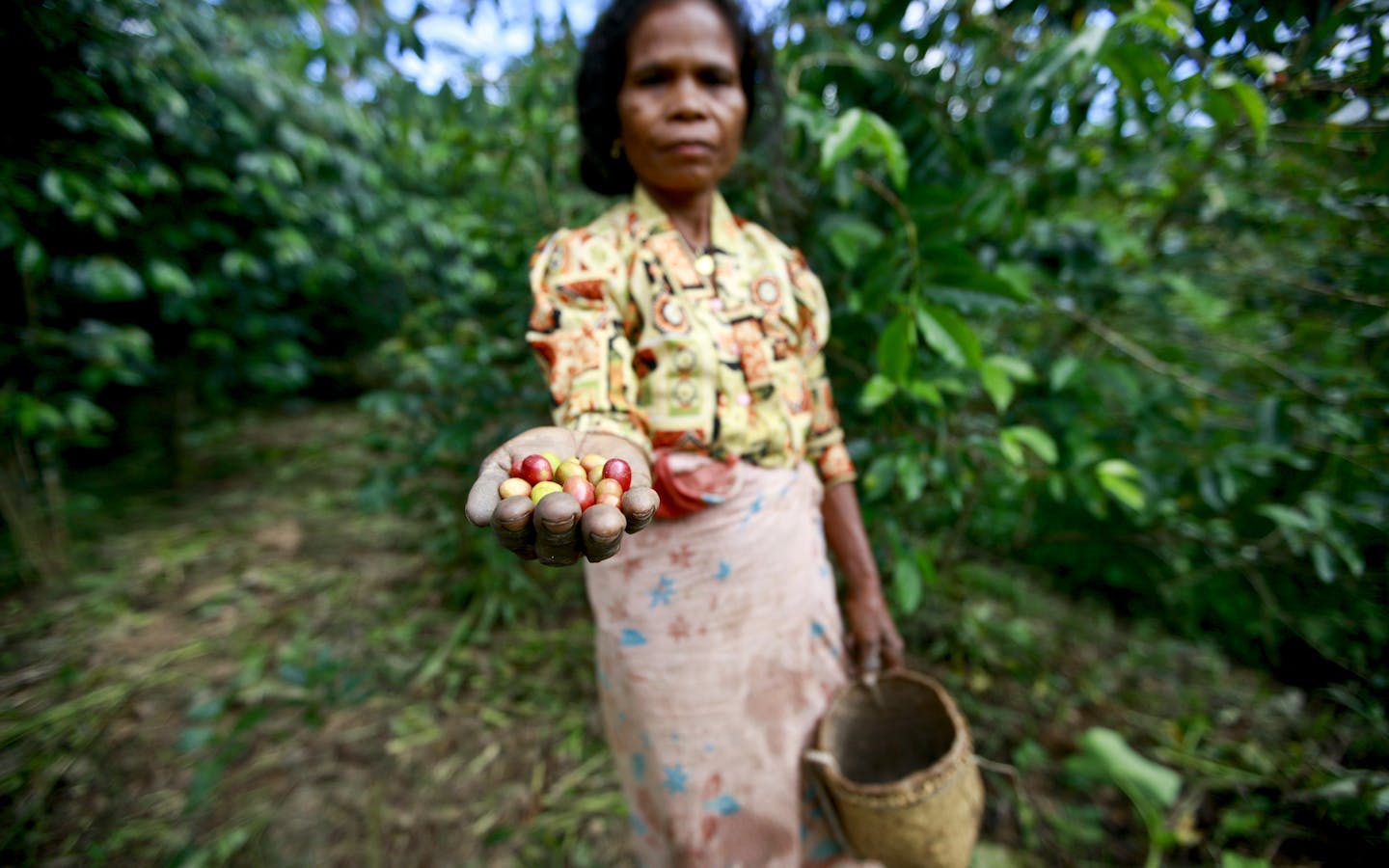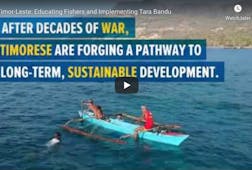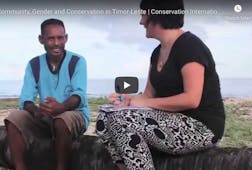Timor-Leste is one of the youngest and fastest-growing countries in the world. As the need for employment opportunities increases, the country must address increasing pressure on its ecosystems.
Our role
Having consensus among communities is essential for conservation plans to succeed. This is why Conservation International works to promote co-management between the government and communities. We develop environmental education training programs that aim to build capacity. This varies depending on needs, for example incorporating local practices to drive sustainable practices, natural resource management or data collection.
Our work

Incorporating local culture
We promote the integration of local traditional practices in policy-making. One such example is the incorporation of the Tara Bandu practice, a traditional law invoked to restrict activities and thus protect natural resources in an area. This acknowledgment
of local custom was key to the success of the “no-take” zone program in Nino Konis Santana National Park.
We also strive to identify the key resources to be protected through sustainable practices. We assess and monitor
ongoing projects to improve forest practices alongside local communities and government stakeholders.

Empowering youth through knowledge
We address knowledge gaps at the pre-university level. In doing so, we not only instill shared environmental responsibility but also provide sustainable employment opportunities.
In addition, we strive to develop a strong network across communities through locally-led cross visits which allow these groups to discuss their lessons learned in their conservation efforts. That way, an organic support system is established through peer learning, mentoring and practical training.

Building capacity using a hands-on approach
Using participatory learning tools, we enable community members to identify the root causes of forest habitat loss, soil degradation, and water quality decline.
For example, to support reforestation efforts, plant nurseries will be established within communities, acting as farmers’ schools for members to share seeds and farming techniques. This provides solid opportunities for hands-on experience for community volunteers.







